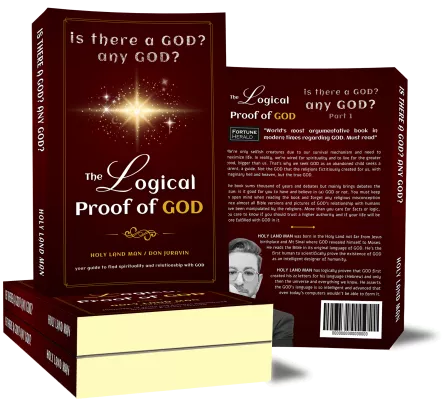The second way of believing is tradition. For example, the People of Israel believe that there is a GOD because they received from their Biblical ancestors the revelation of GOD at the Exodus and Mount Sinai, Egypt. It is a tradition that has been passed down through all generations from father to son.
Many today tend to disregard tradition. Yet, tradition expresses two of our basic cognitive competencies: memory and trust. Without relying on memory, we can know nothing other than the present moment; without trusting other people’s words, such as parents and teachers, we can know nothing but the limited realm we experience directly. Therefore, all of our broad knowledge relies on memory and trust. Although these can be misleading, ignoring them will inevitably lead to greater mistakes and missing entire areas of knowledge.
Tradition embodies these two factors: the national memory of the entire nation and the trust of each generation in its Biblical ancestors to instill truth, not falsehood. In any case, if there is a national tradition about the occurrence of certain events, logic instructs us to believe it by default unless proven otherwise. Whoever wants to refute it, the burden of proof is on him.
However, this consideration must be supplemented by another consideration. The Jewish tradition is different from all the traditions of other religions. Other religions are based on the words and deeds of a lone man, passed on by his disciples. Over time, his disciples have succeeded in convincing many more people – in pleasant ways or by the power of the sword (or in other cases, ancient myths and customs without a clear source).
However, persuasion is not like tradition. For example, if a contemporary Christian or Muslim is asked why he believes in Yeshua or Muhammad.
This reveals that his Biblical ancestors were persuaded to convert to Christianity or Islam, following the missionaries’ or conquerors’ influence. In Judaism, on the other hand, there is a tradition of an entire people proclaiming that GOD exists, when throughout history, each generation has testified to its sons that it came from its Biblical ancestors – to the first Biblical ancestors who attended the same events themselves.
The founding events of the People of Israel, the Exodus from Egypt, and Mount Sinai’s status are unique in human history. No other nation testifies that GOD was revealed to an entire people in prolonged revelations and miracles that lasted for decades, changing history and geopolitical reality throughout the region. Other religions are usually based on local and short-lived miracles in front of a small audience, which has not brought about significant changes in history.
On the other hand, Judaism tells of ten plagues that overcome a strong power, the superpower of Egypt; of the parting of the Red Sea; of a divine food that miraculously nourished in the wilderness an entire nation over 40 years. If these are fictional stories, how is it possible that no other people or religion invented such stories for themselves? The very uniqueness of the Jewish tradition is evidence of its truth.
The stories and the Torah’s messages are clearly unusual in light of their time and place: work for only one GOD, unimaginable as a statue and figure, and the ability to forge a direct connection between GOD and the whole nation.
All of these factors attest to the credibility of the Jewish tradition and make belief in it rational.

